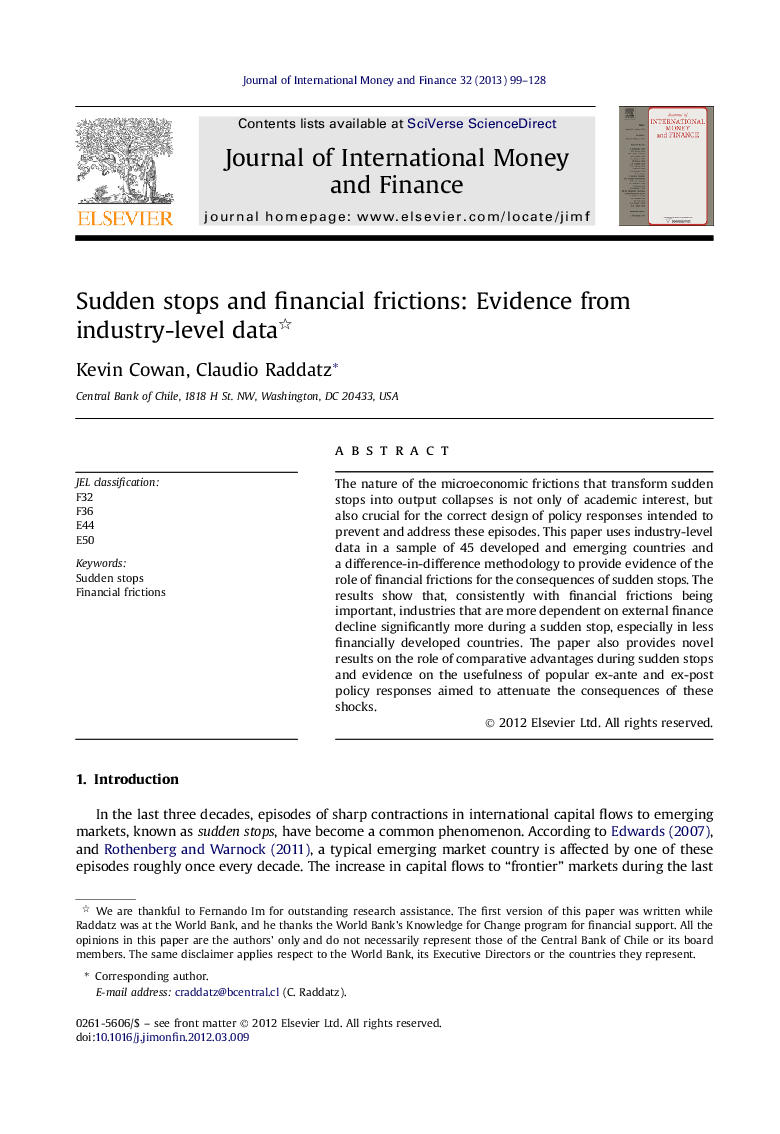| Article ID | Journal | Published Year | Pages | File Type |
|---|---|---|---|---|
| 7366100 | Journal of International Money and Finance | 2013 | 30 Pages |
Abstract
The nature of the microeconomic frictions that transform sudden stops into output collapses is not only of academic interest, but also crucial for the correct design of policy responses intended to prevent and address these episodes. This paper uses industry-level data in a sample of 45 developed and emerging countries and a difference-in-difference methodology to provide evidence of the role of financial frictions for the consequences of sudden stops. The results show that, consistently with financial frictions being important, industries that are more dependent on external finance decline significantly more during a sudden stop, especially in less financially developed countries. The paper also provides novel results on the role of comparative advantages during sudden stops and evidence on the usefulness of popular ex-ante and ex-post policy responses aimed to attenuate the consequences of these shocks.
Related Topics
Social Sciences and Humanities
Economics, Econometrics and Finance
Economics and Econometrics
Authors
Kevin Cowan, Claudio Raddatz,
